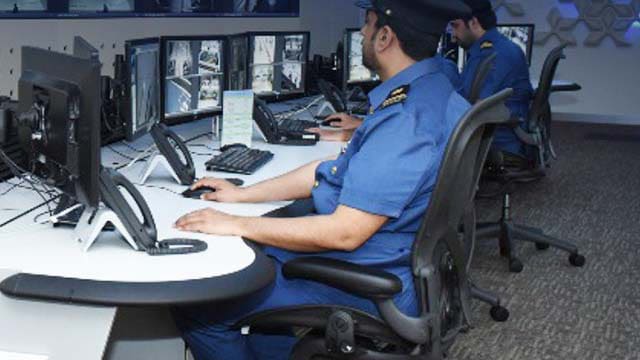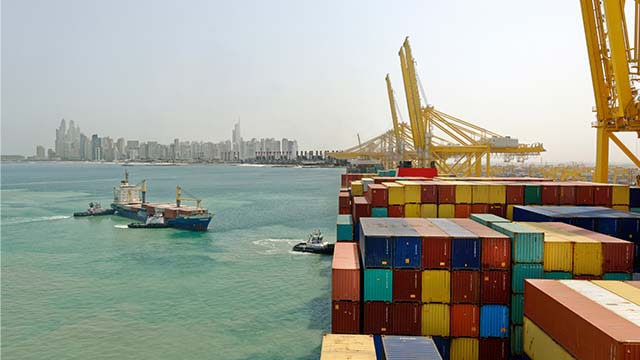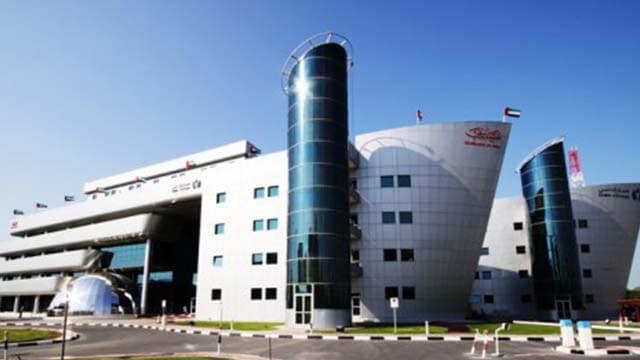 Dubai Customs
Dubai Customs
Government organization ensures secure, barrier-free trade by scaling its software development, testing, and maintenance capabilities with OpenText™

About Dubai Customs

-
Yearly customs checks:5+ million
-
Based in:Dubai
-
Founded in:1890
Summary
Challenges
- Facilitating 100,000+ customs clearances daily.
- Supporting growing business demand.
- Testing application performance on representative datasets.
- Automating quality assurance for applications.
Solution
- Delivered highly scalable application testing and development.
- Stress tested applications at peak load and in complex scenarios.
- Enhanced efficiency with automated functional testing.
Results
Enabled frictionless scalability for all testing workflows
Achieved 76% shorter release cycles
Enhanced productivity with 99% faster dataset creation
Challenges
- Facilitating 100,000+ customs clearances each day demands flexible, reliable, and resilient software
- Growing business demand required applications, services, and transactions to meet the business requirement to deliver quality services
- Lack of availability of large amounts of data made it hard to test application performance
- Needed a system able to automate the quality assurance process for multiple applications running on different technologies
- Needed to attain the speed of delivery required by the growing business
Dubai Customs plays a key role in the economic development and prosperity of Dubai, the most populous city-state in the United Arab Emirates (UAE). Founded in 1890, the government organization ensures the smooth flow of trade across state and federal borders, while also preventing illegal or prohibited items from entering the Emirate.
Every day, Dubai Customs runs over 100,000 checks on goods passing through the Emirate’s land, air, and seaports. Responsive, flexible, and performant software empowers the government organization to process high volumes of goods quickly and efficiently. However, any glitches or bugs could delay customs checks and disrupt the movement of goods into and out of Dubai.
To ensure smooth trade all year round, the Information Technology division at Dubai Customs develops and rigorously tests the software powering its operations, running regular maintenance tests to optimize performance. With trade booming in the UAE, the government organization was keen to ensure that it could keep pace.
Chandrashekhar Bhagat, senior software testing lead at Dubai Customs, explained, “When Dubai prospers, we see much greater demand on our core software. Our existing testing processes and systems were not well-prepared to meet higher transaction volumes and workloads. For instance, generating one dataset manually for maintenance testing would take up to three hours. To ensure high efficiency and keep our core applications and services reliable and performant, we decided to look for a solution to enhance and expand our testing activities and continue to modernize our application landscape.”

OpenText Application Quality Management, OpenText Functional Testing and OpenText Professional Performance Engineering all helped us to scale our testing and management workflows as we grew. Crucially, we’ve been able to drive this growth while also ensuring round-the-clock uptime for our applications.
Solution
To scale application testing and development effortlessly, Dubai Customs combined OpenText™ Application Quality Management (ALM/QC), OpenText™ Functional Testing (UFT One) and OpenText™ Professional Performance Engineering (LoadRunner Professional) to enable rapid maintenance, operational, performance, and functional testing.
Products deployed
-
OpenText™ Application Quality Management
Helps govern application lifecycle management activities and implement rigorous, auditable lifecycle processes
-
OpenText™ Professional Performance Engineering
This web-based, globally accessible platform facilitates enterprise-wide performance testing and collaboration
-
OpenText™ Functional Testing
AI-powered testing tool which accelerates test automation, across desktop, web, mobile, mainframe, composite, and enterprise-grade applications
Driving scalable application testing and development
For over a decade, Dubai Customs has supported functional, performance, and maintenance testing with OpenText Application Quality Management. With workloads increasing, the government organization decided to upgrade to the latest version of the OpenText solution, taking advantage of the latest features and functionality.
Kannan Venkatachalam, software test manager at Dubai Customs, said, “Over the past 16 years, OpenText Application Quality Management has supported numerous development cycles and helped to ensure that our software is powerful and stable. Moving to the latest version of the solution was an easy decision.”
Today, OpenText Application Quality Management functions as a one-stop solution for all of the government organization’s application lifecycle management activities. Dubai Customs uses the solution to develop, test, deploy, and maintain 15 core applications as well as hundreds of associated services. What’s more, OpenText Application Quality Management provides the government organization with a full audit trail of all development workloads, simplifying version control and compliance reporting.
Stress-testing applications at peak load in complex scenarios
Throughout the year, Dubai Customs sees peaks in demand for certain services which place additional pressure on its core applications. In many cases, these surges are unpredictable, so the government organization regularly tests every application and service against a variety of scenarios. To achieve this, Dubai Customs selected OpenText Professional Performance Engineering to drive performance load testing across all of its codebases—including Java, .NET, and SQL.
“Our applications are quite complex and integrate with many different government systems,” said Chandrashekhar Bhagat. “In some cases, we need to populate applications with data from up to five unique systems to run performance tests. OpenText Professional Performance Engineering gives us the tools we need to manage the complexity of our software stack, run a comprehensive set of performance tests, and identify and remediate any issues quickly and efficiently.”
Enhancing efficiency with automation
In partnership with business partner Emitac, Dubai Customs worked to accelerate functional testing activities by harnessing the automation capabilities of OpenText Functional Testing—a move that would significantly increase test coverage.
“One of the major benefits of OpenText Application Quality Management is that it enables us to reuse test scripts, some of which have served us well for many years,” explained Kannan Venkatachalam. “By integrating OpenText Application Quality Management with OpenText Functional Testing, we can automate a significant proportion of our functional testing activities and trigger them directly from the user-friendly OpenText Application Quality Management interface.”

The automation features in OpenText Professional Performance Engineering and OpenText Functional Testing have been a real game changer, especially for maintenance testing. We can now generate test datasets in minutes.
Results
With OpenText’s help, Dubai Customs successfully expanded its software stack from 3 to 15+ core applications along with associated applications over 16 years. OpenText Application Quality Management, OpenText Functional Testing and OpenText Professional Performance Engineering have helped the organization run over 30,000 tests.
Delivered frictionless scalability with support for over 30,000 test cases
With data volumes and trade expected to rise, Dubai Customs is working hard to enhance its applications and ensure that they perform well under new pressures. Already, OpenText solutions have helped the government organization increase application testing and lifecycle management activities. To date, Dubai Customs has used OpenText solutions to run over 30,000 unique test cases.
Chandrashekhar Bhagat explained, “When we first started out with OpenText Application Quality Management we had just three core applications and around 10,000 users. Now we manage 15+ critical applications, hundreds of supporting services, and more than 100,000 transaction simulations. OpenText Application Quality Management, OpenText Functional Testing and OpenText Professional Performance Engineering all helped us to scale our testing and management workflows as we grew. Crucially, we’ve been able to drive this growth while also ensuring round-the-clock uptime for our applications.”
Bader Al Kharoosi, solutions delivery head at Dubai Customs, added, “Dubai Customs' IT services have experienced significant growth, incorporating leading IT practices, processes, and tools from key market players. Utilizing software testing tools from OpenText, we simulate the functional and performance aspects of all applications before production rollout. This strategic approach has added considerable value to our operational capabilities, minimizing functional issues and application failures while maintaining optimal performance.”
Achieved 76% shorter release cycles
Dubai Customs previously took an iterative approach to software development, which meant that release cycles could take up to two months to complete. Since upgrading to the latest version of OpenText Application Quality Management, the government organization has shifted to an Agile testing approach, with release cycles now cut to two weeks.
“On average, it only takes us 14 days to test and release new versions of our applications,” said Kannan Venkatachalam. “This is a huge improvement, and for critical maintenance tasks we’ve cut build time to just two days. As a result, we can launch releases more regularly to ensure that all of our critical services and applications are always up to date and offer users the latest features—whether that’s new functionality or enhanced integrations.”
Boosted IT productivity with automated workflows
Previously, IT experts at Dubai Customs would spend up to three hours manually generating data for maintenance tests. By automating this process with OpenText Functional Testing and OpenText Professional Performance Engineering, IT teams complete the task in just two minutes—99% faster.
Chandrashekhar Bhagat commented, “The automation features in OpenText Functional Testing and OpenText Professional Performance Engineering have been a real game changer, especially for maintenance testing. We can now generate test datasets in minutes, so we can spend more time on application innovation and enhancing workflows. We’re now excited to see how the artificial intelligence tools embedded in OpenText Functional Testing will be able to help us to drive further efficiency improvements in the months ahead.”
Kannan Venkatachalam concluded, “OpenText solutions give us the tools we need to provide our colleagues with easy-to-use, secure, and reliable software. Ultimately, this plays a key role in supporting the smooth movement of goods to and from Dubai and helps prevent illegal or prohibited items entering the Emirates.”